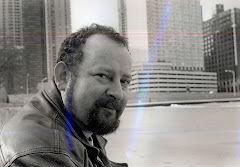When I first saw Martin Scorsese's Mean Streets exactly 36 years ago, I was blown into smithereens. Like my first serious piece of ass and eating at Galatoire’s (in a shirt and tie, by God!), there are some singularly pristine experiences we’re all doomed to never repeat. Having grown up an ocean away in Manchester, England, the experiences portrayed had very little in common with my own; yet, somehow, I knew these people just as if they came from my own manor. This movie--made as an independent, the deal put together by two young entrepreneur producers, Amy Robinson and Griffin Dunne--proclaimed the flowering of a tiny motor-mouthed whirlwind of a writer-director, Martin Scorsese, and the collaborative collective acting genius of Robert DeNiro and Harvey Keitel.
Mean Streets is Martin Scorsese’s third movie. A stripped-down, muscular low-budget feature produced on a shoestring budget and shot in New York City’s Little Italy, Scorsese’s brilliant film takes on the mythic Godfather-style storytelling elements of the neighborhood, strips them bare and attacks them relentlessly--albeit with a deft sense of humor-- ultimately leaving them lying ravaged, bloody and naked in the gutter. Yet it’s not so much that the film attacks the romantic notions that surround mobsters and the mafia, grateful patriotic immigrants or the redundancy of the Roman Catholic church, it’s more about feel. Scorsese, forever a master of distilled characterization, plays Mean Streets like a cool jazzy riff. Bobbing and weaving, zigging and zagging as if to the beat of busy busy drummer pounding bass drum, cymbals, snare and tom-tom all at the same time. There’s very little gratuitous chitchat. People barely talk; they exist within their environment as superstition, gesture and body language rule.
The film’s story concerns Charlie (Harvey Keitel), who always talks the talk about being able to do the right thing. Charlie is fanatically methodical about his job as a numbers runner and collector for his good looking mafioso uncle Giovanni (Cesare Danova). Yet, as much as he loves hustling for his uncle, Charlie is a devout Catholic who repeatedly experiences profound spiritual longings. As such, Charlie insistence that he is his brother's keeper helps determines his ultimate tragic destiny. The sad loser Charlie feels responsible for is his cousin Johnny Boy (Robert DeNiro), a crude, willfully ignorant loose cannon of a Sicilian street punk.
Johnny Boy is the last person anyone would want to be voluntarily involved with. A degenerate gambler in hock to a number of sleazy loan-sharks, Johnny Boy is the dope-addled energetic heart of the film. For Charlie, who dreams of escaping the criminal life and opening his own restaurant, Johnny Boy is both a burden and a source of comic relief. Often completely goofy--Mean Streets offers much humor, both verbal and slapstick to go with its constantly impending sense of doom--forever urging Charlie to stand next to him in the fire, Johnny’s sociopathic dealings make him seem more like a bipolar insult comic than the gangster wannabe he insists he wants to be. Witness the hilarious extemporaneous bit the ensemble pull off at the tavern as they riff on ‘What’s a mook!' There’s nothing like watching DeNiro do a goofy little street dance to Lamont Dozier’s ‘Going To A Go-Go’ as he puts a lit M-80 in a mailbox. Unfortunately, Johnny-Boy isn’t simply a cute, droll hothead with a rebellious spirit. Just as you’re thinking the kid might turn out to be fundamentally deep-down okay, he makes sure to gossip about Charlie having an affair with their epileptic cousin, the tall, sexy Teresa (Amy Robinson). The single last thing Charlie needs to happen is for Uncle Giovanni to find out that he’s in love with an epileptic girl who’s carrying their blood.
Teresa, who is just as much in love with Charlie as he is with her, is the only major female character in the film. She alone is able to see beyond the choking, destructive confines of the Little Italy gangster life and relentlessly nags at Charlie, trying to cajole him into moving out with her to live elsewhere.
Constantly in conflict with himself, Charlie, despite showing a clear theological intellectual bent, fiercely embraces the traditional He may have had a better education than Teresa--quoting William Blake and all--but he's also much more naïve. Deeply enraptured by this archaic notion of old-fashioned tradition, as if all the old goombas from the island really do have access to some brilliant secret of life and really are closer to God, Charlie loves to touch fire and act like some dazed mystic.
Beautifully shot in muted grainy color by Kent Wakeford, Mean Streets takes place much of the time in a dimly lit bar run by Charlie's pal Tony (David Proval). The film’s heady mix of male bonding and savage violence anticipates much of what virgin viewers later felt was brand-spanking-new in Good Fellas--including a number of dizzying tracking shots. The film also owns a wonderful soundtrack including scenes which seem choreographed to fit pop tunes such as ‘Rubber Biscuit,’ ‘Pledging My Love,’ the aforementioned ‘Mickey’s Monkey’ and ‘Mala Femmena,’ rather than the other way round.
Cast-wise, Richard Romanus is a stunning mixture of street charm, savvy and caveman savagery as the oldest, toughest member of the group. David Carradine, the star of Scorsese's second feature, Boxcar Bertha, and his brother Robert impress in one particularly gritty scene. Even Scorsese's mother, Catherine, puts in a cameo appearance as she does in most of her son's earlier films. Scorsese himself does a cameo as a hit man in the back seat of Romanus' car at the film's bloody climax. Even this early in their careers, Keitel and DeNiro show themselves to be performers of tremendous energy, skill, wit, imagination and energy.
See it for the first time or see it again! It’s my personal all-time favorite.


No comments:
Post a Comment